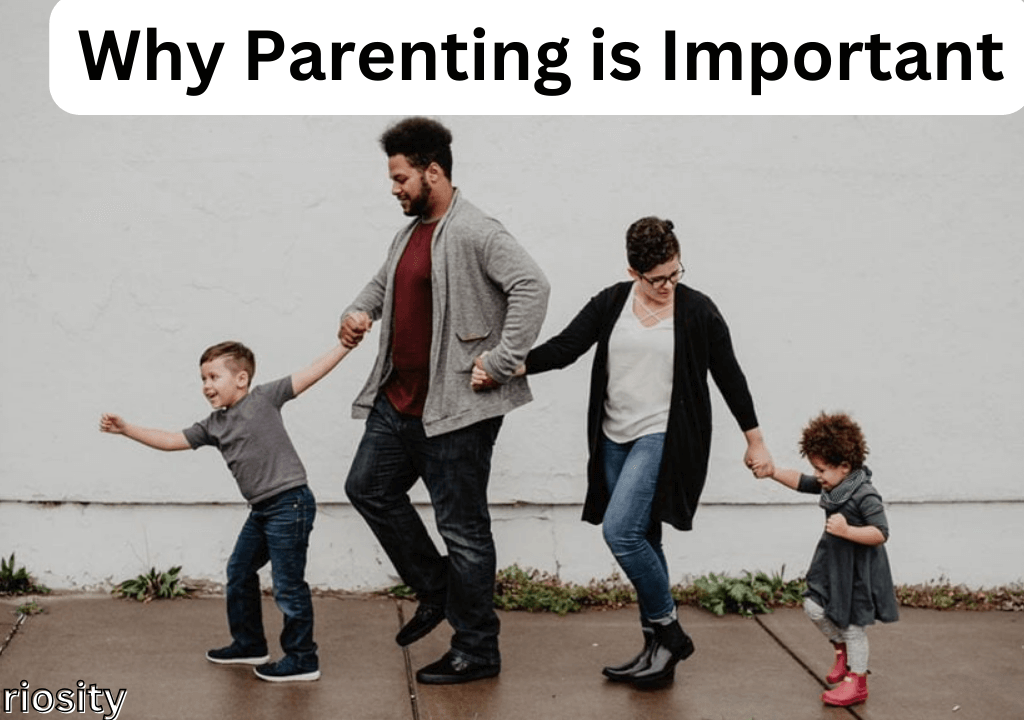Parenting is a profound responsibility that shapes not only the lives of individual children but also the future of society. The impact of effective parenting extends far beyond the immediate family, influencing communities and entire generations. This article explores why parenting is important, highlighting the crucial roles parents play in their children’s lives, and providing valuable insights into effective parenting practices.
The Foundations of Parenting
Emotional and Psychological Development
One of the primary reasons why parenting is important is its impact on a child’s emotional and psychological development.
- Secure Attachment: Consistent and loving care helps children develop secure attachments, fostering emotional stability.
- Self-Esteem: Positive reinforcement and support from parents build a child’s self-esteem and confidence.
- Emotional Regulation: Children learn to manage their emotions through the example set by their parents.
For more insights on creating a nurturing environment, explore our article on basic parenting tips.
Social and Moral Development
Parents are the first educators in a child’s life, imparting essential social and moral values.
- Social Skills: Interaction with parents helps children develop essential social skills such as communication, empathy, and cooperation.
- Moral Framework: Parents instill values and ethics, guiding children in understanding right from wrong.
- Role Models: Children often emulate their parents’ behavior, making it crucial for parents to lead by example.
The Role of Parenting in Early Childhood
Cognitive Development
During the early years, parenting plays a vital role in cognitive development.
- Language Skills: Engaging in conversations, reading, and singing with young children promotes language acquisition.
- Problem-Solving Skills: Parents can stimulate cognitive growth through interactive play and problem-solving activities.
- Curiosity and Learning: Encouraging curiosity and providing learning opportunities foster a love for learning.
For more tips on supporting early childhood development, check out our article on parenting tips for toddlers.
Physical Health and Well-Being
Ensuring a child’s physical health is another critical aspect of parenting.
- Nutrition: Providing balanced meals and healthy snacks supports physical growth and development.
- Exercise and Play: Encouraging regular physical activity helps build strength and coordination.
- Healthcare: Regular medical check-ups and vaccinations are essential for maintaining a child’s health.
Parenting Through Adolescence
Guiding Through Transitional Years
The teenage years are a critical period of transition, and effective parenting is essential during this time.
- Open Communication: Maintaining open lines of communication helps teens feel supported and understood.
- Setting Boundaries: Clear and consistent boundaries provide structure and safety for teenagers.
- Encouraging Independence: Supporting teens in making decisions and taking on responsibilities fosters independence and self-reliance.
For more detailed guidance, visit our article on parenting tips for teenagers.
Emotional and Social Challenges
Adolescence brings unique emotional and social challenges that require thoughtful parenting.
- Empathy and Support: Providing empathy and support helps teens navigate their emotional landscape.
- Peer Influence: Parents can guide teens in making positive choices amidst peer pressure.
- Mental Health: Being attuned to a teenager’s mental health and seeking professional help when necessary is crucial.
Long-Term Impact of Parenting
Academic and Career Success
The foundation laid by effective parenting significantly influences a child’s academic and career success.
- Encouraging Education: Valuing education and encouraging academic pursuits foster a love for learning.
- Work Ethic: Instilling a strong work ethic and perseverance prepares children for future challenges.
- Goal Setting: Teaching goal-setting and time management skills aids in achieving long-term success.
For more strategies on preparing children for future success, read our guide on skills for new parents.
Lifelong Relationships
The skills and values imparted by parents play a pivotal role in shaping a child’s future relationships.
- Communication Skills: Effective communication skills learned at home contribute to successful personal and professional relationships.
- Empathy and Respect: Values of empathy and respect fostered by parents lead to healthier interpersonal relationships.
- Conflict Resolution: Teaching conflict resolution skills helps children navigate disagreements and build strong, lasting connections.
Conclusion
Understanding why parenting is important underscores the profound impact parents have on their children’s lives and the broader society. Through nurturing emotional, social, and cognitive development, guiding through adolescence, and preparing for future success, parents shape the next generation. Embracing effective parenting practices and continuously learning and adapting can help parents navigate the challenges and joys of raising children. Remember, every child is unique, and finding what works best for your family is key to successful parenting.
